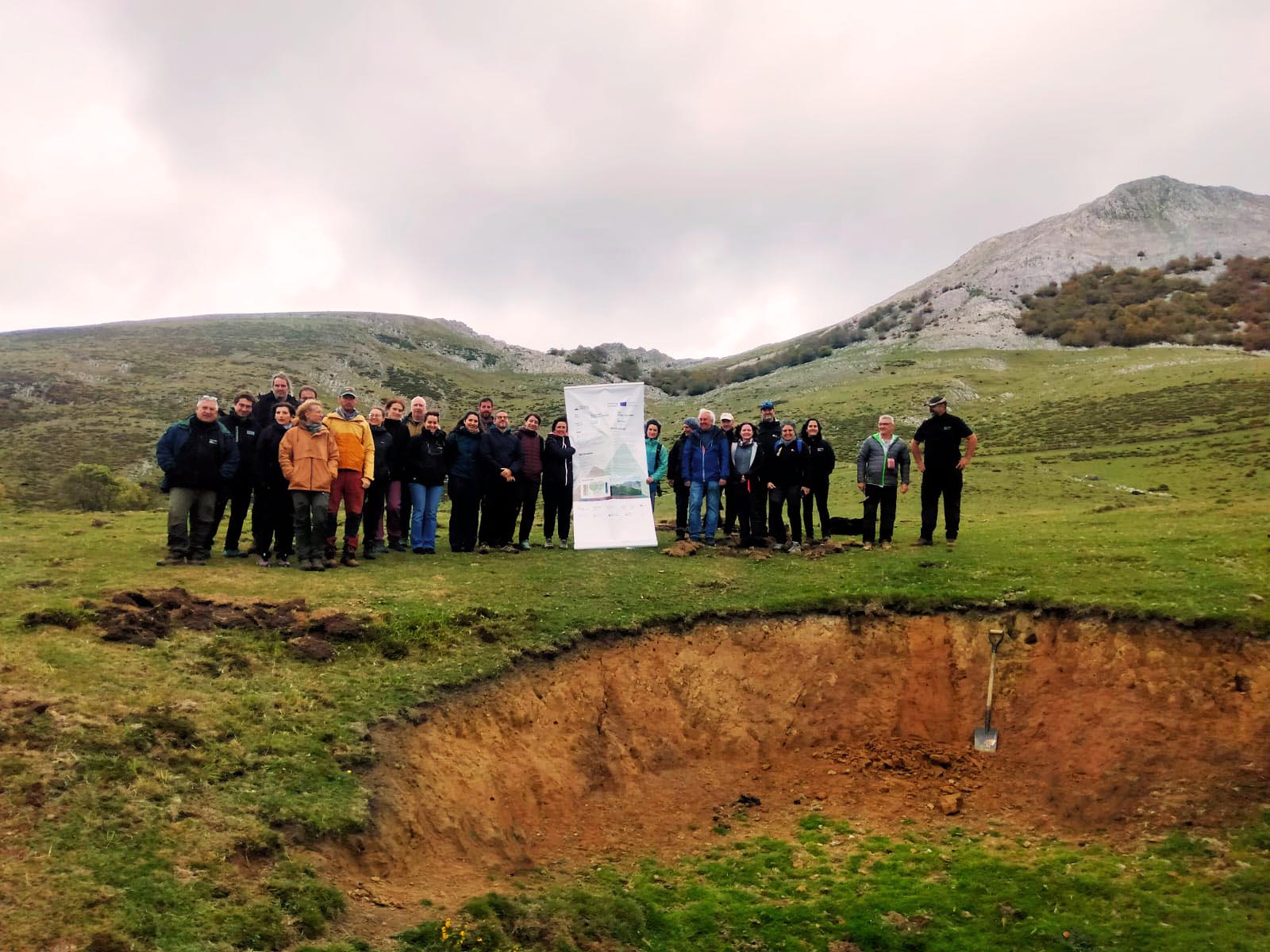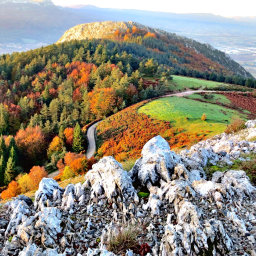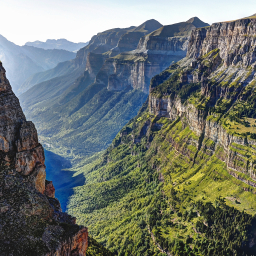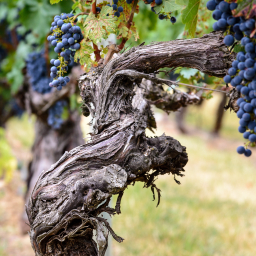NEW
NEIKER hosts a cross-border meeting for the protection of Pyrenean soils
23 October 2025
- The conference is part of the European SOLPYR project, which aims to understand and protect mountain soils.
- The meeting brings together experts and representatives from different regions of the Pyrenees to share experiences and coordinate sustainable management strategies.
- The planned solutions include harmonised maps and methodologies for understanding soils, as well as educational materials and tours to raise public awareness.
Mountain soils play an essential role in the ecological balance and sustainability of ecosystems, acting as climate regulators, an essential part of the water cycle and reservoirs of biodiversity. In the Pyrenees, their fragility is accentuated by extreme climatic conditions and pressures arising from climate change and the increasing recreational use of the territory.
With the aim of furthering knowledge and conservation, the NEIKER technology centre, an entity dependent on the Basque Government’s Department of Food, Rural Development, Agriculture and Fisheries, is hosting the 2nd Pyrenean Soil Forum this week. This event is part of the European SOLPYR project, which aims to protect mountain soils through the development of knowledge, awareness and cooperation between entities in the different Pyrenean regions, and will combine technical office working days with an awareness-raising day in the field.
The meeting brings together experts and representatives from institutions in different regions of the Pyrenees who work in research, forest management, agriculture, livestock farming and public administration, with the aim of discussing the progress of the project and sharing experiences on the governance and conservation of mountain soils. Among the topics for discussion are the harmonisation of methodologies for mapping soils and determining their vulnerability, as well as the development of the Pyrenees Soil Action Plan, which establishes a common strategy for protecting this resource on a cross-border scale and is based on the results of seven co-creation workshops held in different Pyrenean regions.
Visit to the mountain soils
The practical session takes place in the Aizkorri-Aratz Natural Park, with the aim of enabling participants to follow the Urbia soil itinerary, while analysing, discussing and enjoying it. During the tour, soil profiles and cross-sections will be shown, as well as points of geological and cultural interest, allowing participants to understand how these soils were formed and their role in the ecosystem and in the human activities that depend on them.
Likewise, presentations by the Parzonería Mayor de Gipuzkoa y Araba and NEIKER will explain how the mountains and soils in the area are managed and how grazing resources are valued, in order to understand their role in the ecosystem and in local economic activities.
‘Along the route, soil cuts and profiles will be analysed, taking into account factors such as the underlying geological material, climate, vegetation and different land uses, from historical pastoral activity to current hiking, which influence the formation and conservation of these soils,’ says Ainara Artetxe, a researcher at NEIKER’s Department of Natural Resource Conservation.
Harmonised knowledge tools
At the same time, within the framework of SOLPYR, work is being done to develop a harmonised map for classifying soils in the Pyrenees and to develop a shared methodology for inventorying and quantifying soil degradation. These tools arise from the need for reliable and comparable information across all Pyrenean regions, as mountain soil problems are largely shared—such as erosion, compaction, and loss of organic matter—but are not always measured uniformly.
The researcher states that ‘sharing and agreeing on working methods is the first step towards obtaining comparable results that will then enable us to identify the most vulnerable areas or determining factors and guide cross-border measures and decisions for the conservation of Pyrenean soils’.
This technical work, focused on cartography and measurement, is enriched by the incorporation of a dimension of public awareness, with educational materials and informative tours that allow hikers, walkers, sportspeople, livestock farmers and managers to learn about and appreciate the soils on which their activities take place, linking the population and decision-makers directly to the conservation of mountain ecosystems.
All this work, which is part of the SOLPYR project supported by the European Union through the Interreg VI-A Spain -France-Andorra Programme (POCTEFA 2021-2027), promotes cross-border initiatives for research, management and awareness-raising on mountain soils, ensuring that the actions carried out have a coordinated and effective reach throughout the Pyrenees.






